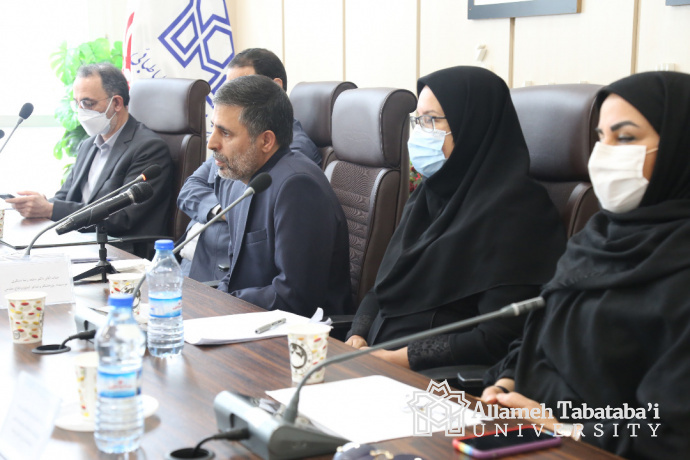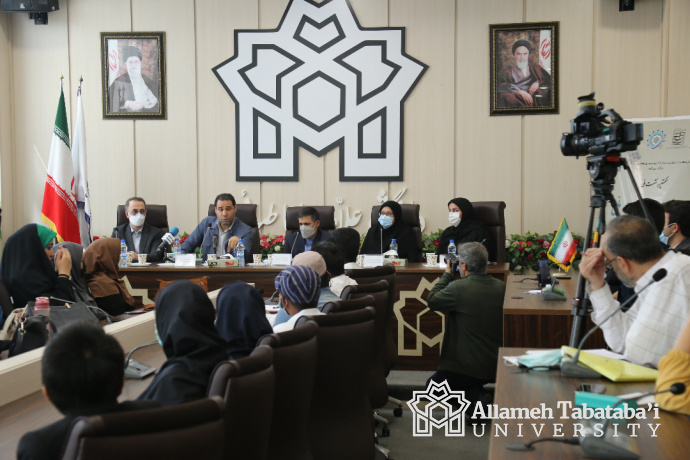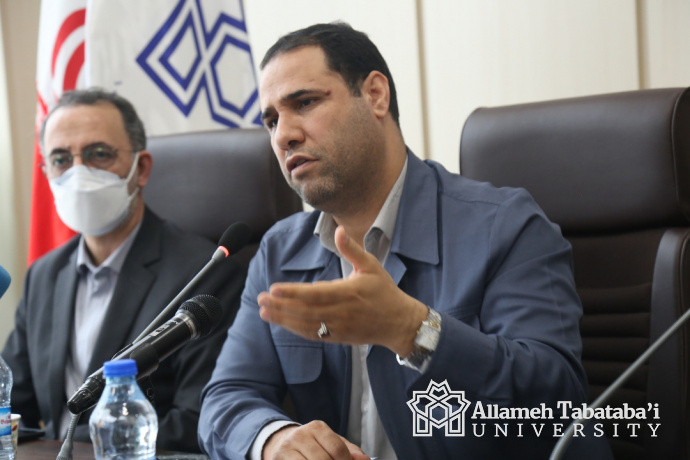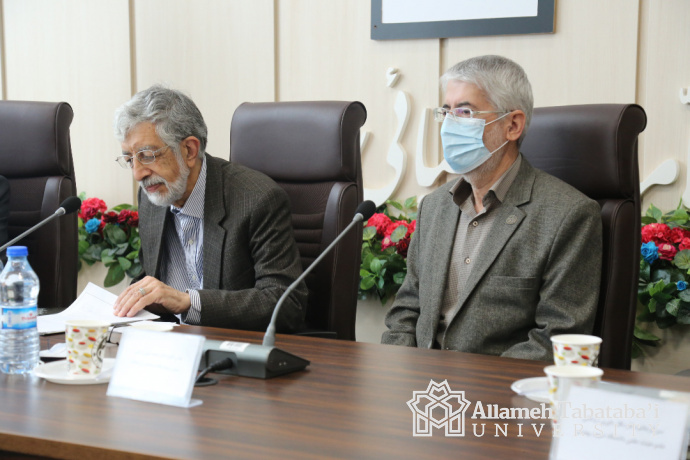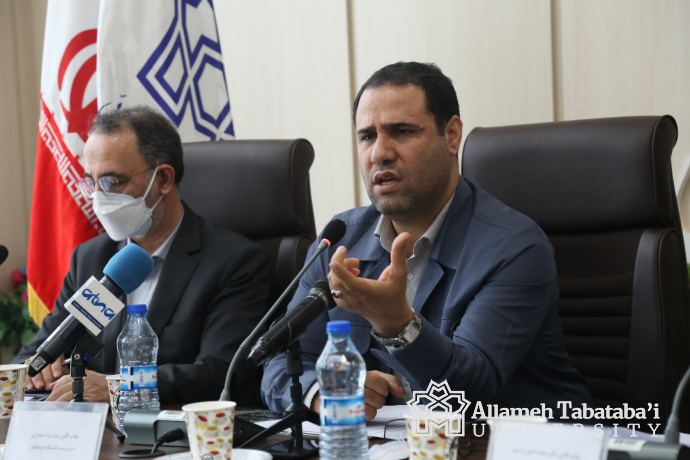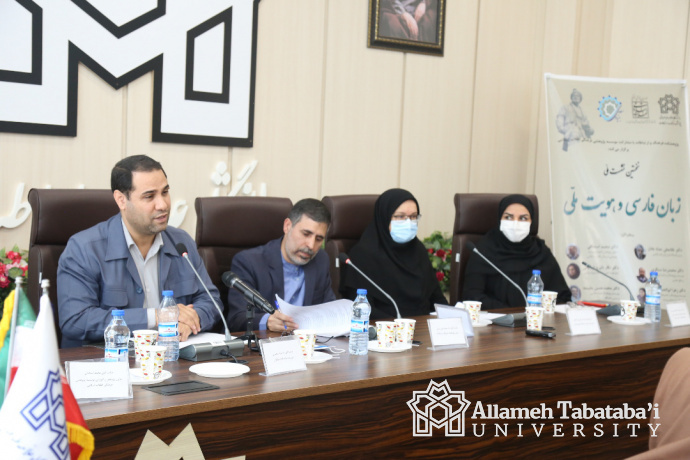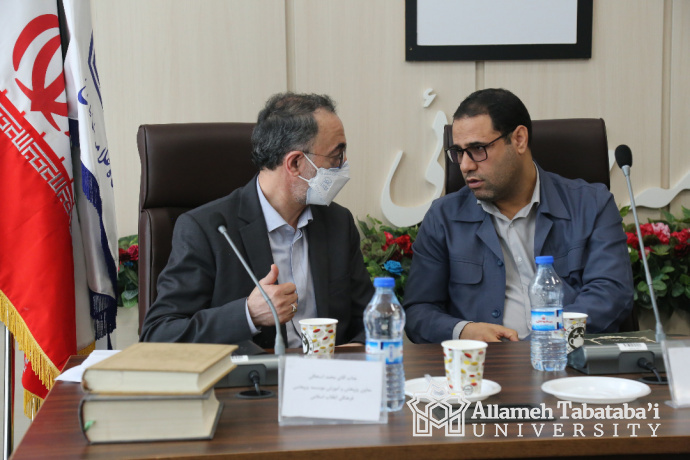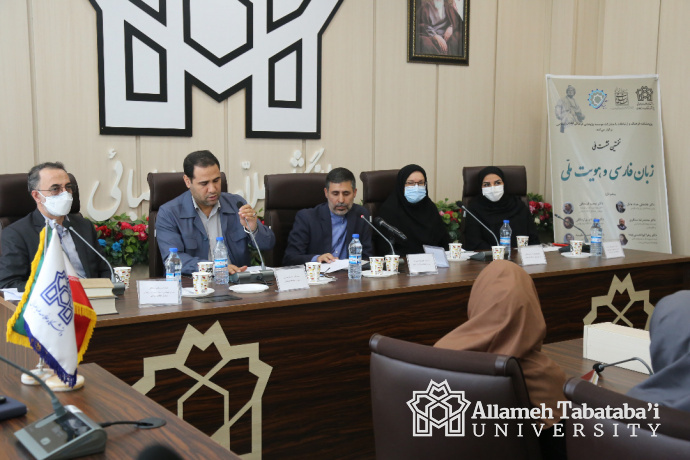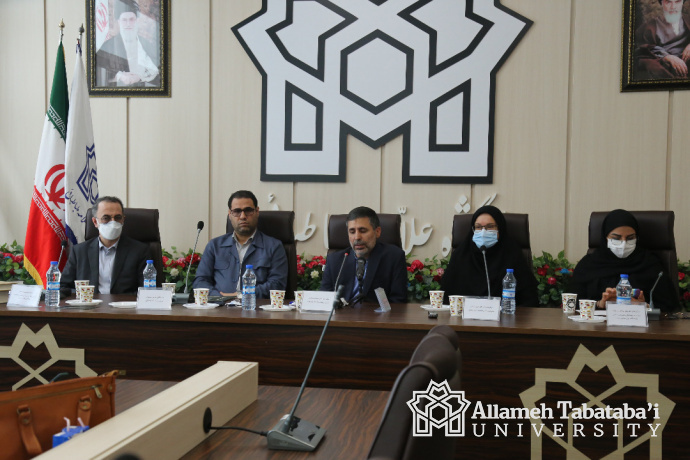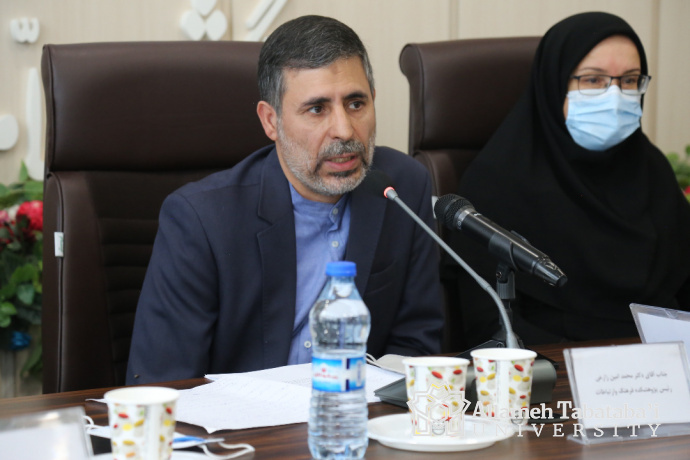ATU holds the national seminar in Persian Language and National Identity
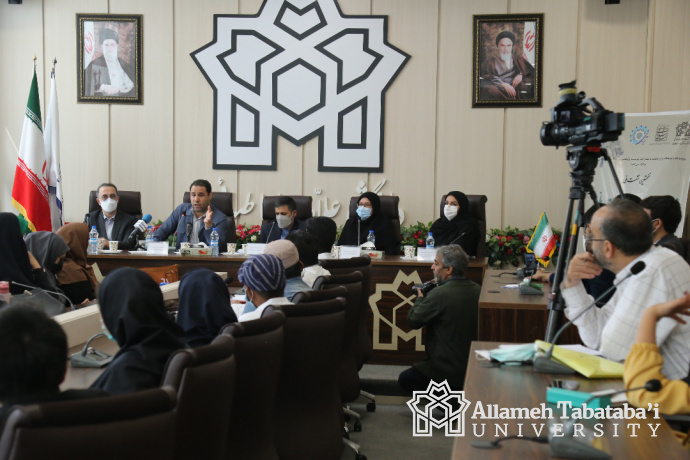
Report by the Directorate for International Academic Cooperation –
(Source: ATU's Public Relations)
The first national seminar on "Persian Language and National Identity" was organised by the Research Institute for Culture and Communications, Allameh Tabataba'i University. The Cultural Research Institute for the Islamic Revolution did also contribute to the organisation of the event in the conference hall of the Central Library and Documentation Centre on 16 May 2022.
The seminar was attended by professors, researchers, and students of Persian language and literature and lectures were delivered by Dr Gholamali Haddad Adel, President of the Academy of Persian Language and Literature; Dr Abdollah Motamedi, President of Allameh Tabataba'i University; Dr Rezamrad Sahraei, Dean of the Centre for Teaching Persian to Speakers of Other Languags (CTPSOL) and Acting President of Farhangian University; Dr Mohammad Eshaghi, Vice-President for Research and Academics, Cultural Research Institute for the Islamic Revolution; Dr Mohammad Reza Sangari, Assistant Professor at the Persian Language and Literature Department, Institute of Islamic Culture and Thought; Dr Negar Davari Ardakani, Faculty Member at Shahid Beheshti University; Dr Zahra Abolhassani Chimeh, author, researcher, and Research Director at the SAMT Organization; and Mr Mohammad Hassan Moghiseh, author and researcher in Persian literature.
At the beginning of the seminar, Dr Sahraei pointed to the relationship between language and identity as a key and strategic issue and explained that "Identity consists of a set of fundamental, intellectual, social, cultural, philosophical, economic, territorial, and climatic components, in each of which there are several features. However, the only place we all meet is the Persian language."
Maintaining that Persian is the only living classical language in the world, he added: "Persian has been the main cause for unity, cohesion, and integration among Iranian people for a thousand years, and all Iranian languages are under the umbrella of the same language. Persian is tied to all Iranian languages: it borrows words from them and provides them with new words."
The CTPSOL Dean then added: "The major function of a common language is to create cohesion, identity, and integration. Therefore, to attack the Persian language is to attack the Iranian identity. The academic community should have a forward-looking view of the issue of the attacks on the Persian language. We do not tolerate any attack on the Persian language, because they would be attacks on our Iranian identity."
In another part of the seminar, Dr Motamedi referred to the studies conducted in the field of identity and said: "Identity means knowing who one is, how one should be, what is right or wrong, and having a unified sense of one's existence. According to studies, identification is delayed until the age of 29, which means that the person is searching for his identity even during his student years.
He pointed out that part of the identity that one seeks is the need to have roots and added that "This need is common to all human beings and everyone is interested in finding their roots, so they can achieve identity through it. National identity means that man ties himself to the ancestors who gave him an existential identity, and this is an important issue. We need to identify the factors strengthening and weakening our national identity so that we can find and apply necessary solutions."
Then, Dr Haddad Adel addressed the importance of identity in the humanities. Referring to individual and collective identities and the correspondence between personality and culture in individuals and society, he said: "The other side of the identity coin is the lack of identity, or the so-called "alienation". This is a deadly disease which can destroy the individual and the society."
He considered the language, literature, art, history, human geography, architecture, clothing, foods, beliefs, religion, customs, and traditions as the major cultural elements and noted: "Language is effective in strengthening national identity in several ways. First, it is an element of connection and establishes collective connections; second, the identity-giving capacity of language is a safe place for preserving cultural elements, components, and values, and all cultures in general."



